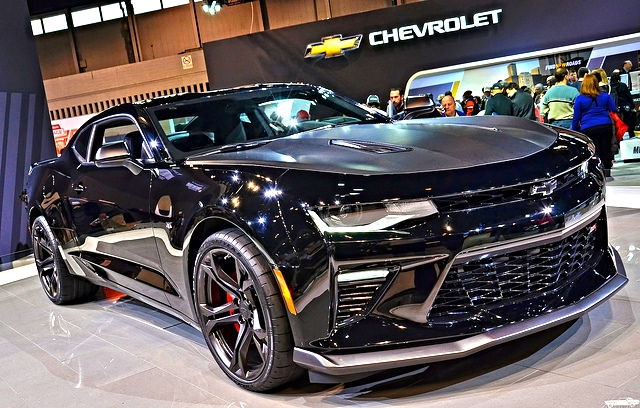Sport cars attract thrill-seeking car enthusiasts because of their high speeds and bold performance, but they can also lead to increased risks for car accidents to occur. If drivers believe that car manufacturers build these types of cars to have more safety features than normal cars, they might want to think again.
The Insurance Institute for Highway Safety (IIHS) conducted tests on three of the most popular sports cars in the United States: the Ford Mustang, Chevrolet Camaro, and Dodge Challenger. The IIHS put these vehicles through its full crash-test circuit for the first time ever, and concluded that none of the cars reached the standard threshold for safety recognition. All three sports cars came up short of both "Top Safety Pick+" and "Top Safety Pick" status, a standard that 65 other 2016 models reached. “These vehicles have high horsepower and they’re driven at higher speeds, and they’ll crash at higher speeds, so you’d like them to have strong protection, but none of them earned Top Safety Pick,” IIHS President Adrian Lund told Autoblog.
On the IIHS’s small-front overlap test, which recreates the impact of the front of the car with a fixed object such as a parked vehicle or a tree as if the car was traveling at 40 miles per hour, the Camaro was the lone vehicle to earn a “good” ranking. The Challenger had “limited survival space for the driver” according to researchers. The small-front overlap is a vital indicator of a vehicle’s safety performance because “when these vehicles go off the road in a single-car crash, it’s often in a small-overlap configuration,” Lund stated.
After taking the performance cars through each of the five crash tests, the Challenger was deemed the worst-performing car out of the three. The Mustang was the closest to earning Top Safety Pick status, according to Lund. A key safety feature for these types of cars is basic crash-warning systems installed to alert drivers when a collision is imminent. Both the Mustang and the Challenger were equipped with this technology, while the Camaro was not. “What we’re seeing here is these vehicles are lagging behind on the crash-avoidance features that are being built into family-type cars,” Lund explained.
This type of revelation about the safety performance, or lack thereof, for these sports cars will hopefully get manufacturers attention going forward and will become a priority in designing the sports cars of the future. In the meantime, it can be difficult for potential car buyers to sift through the different safety features that vehicles offer, as terminology can be wildly inconsistent. Car shoppers should remember to ask their dealership about a vehicle's safety features and make sure they understand what it means and how it works.
Whether it's a sports car or mini-van, auto accidents can happen in a split second. Unfortunately, the physical and mental damage from an accident may carry on for a lifetime. Broken bones, brain injuries, memory loss, and nerve damage are some of the possible long-term effects from a crash. If you or somebody you know has been injured in an auto accident, including those that may have been prevented by better safety measures, call The Michigan Law Firm, PLLC. Call us today, at 844.4MI.FIRM for a free consultation.



